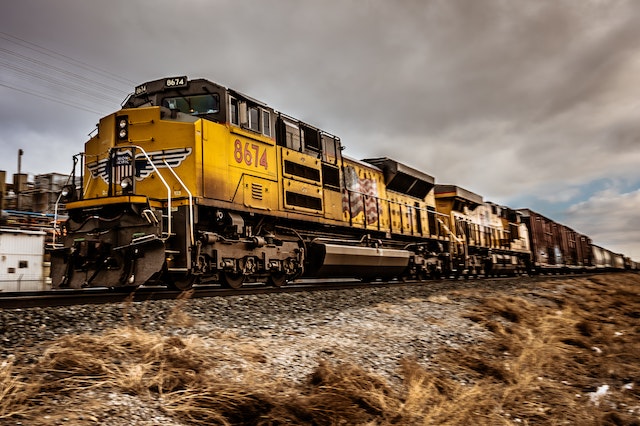
Exposure to diesel exhaust fumes can cause serious health problems for railroad workers. The Federal Employers’ Liability Act (FELA) was created to protect railroad workers from workplace injuries, including exposure to diesel fumes in the cab of locomotives. FELA requires railroad companies to provide a safe work environment for their employees and prevent workers from being exposed to unnecessary harms.
The Federal Employers’ Liability Act was created to protect railroad workers injured on the job.
The Federal Employers’ Liability Act (FELA) was created to protect railroad workers injured on the job. FELA is a part of the US Code, Title 45, Sections 51-60.
Railroad companies have an obligation to protect railroad workers from exposure to excessive diesel fumes.
Railroad companies have an obligation to protect railroad workers from dangerous conditions, like exposure to excessive diesel fumes. Railroads need to properly maintain the locomotives to ensure that the engines are burning fuel as cleanly as possible, that the cab is properly sealed and ventilated. Understaffed mechanical departments that can’t keep up with timely maintenance can create unsafe conditions of fumes in the locomotive cabs.
The Locomotive Inspection Act requires that locomotives be properly maintained, including windows and window seals.
- The Locomotive Inspection Act was passed in 1910, requiring all locomotives operating in the United States to be inspected and certified.
- The Locomotive Inspection Act requires that locomotives be properly maintained, which includes windows and window seals.
- The Locomotive Inspection Act incorporates the regulations of the Federal Railroad Administration which require, among other things, that the stacks of the locomotive be of sufficient height, or other means provided, to prevent products of combustion from entering the cab.
Diesel fumes can enter the cab through leaks and improperly sealed windows.
The seals around the windows and doors of locomotive cabs can become worn and damaged over time. A damaged window seal can let diesel fumes into the cab and create a safety hazard for train crews. Railroad companies and should undertake regular maintenance to reduce worker exposures through worn and cracked seals, or poorly ventilated locomotive cabs.
Railroad workers have also described diesel fumes coming up through gaps in the floor of the cab, or coming into the cab from the electrical compartment. Any of these situations can be evidence of a Locomotive Inspection Act violation from improper maintenance, or failure to prevent products of combustion from entering the cab.
In certain circumstances, when diesel fumes enter the cab of the locomotive, the Locomotive Inspection Act has been violated.
When the situation shows a violation of the Locomotive Inspection Act, a railroad worker’s claim under the Federal Employers’ Liability Act can be strengthened. Without a Locomotive Inspection Act violation, the FELA allows a jury to reduce a worker’s verdict for contributory negligence – what the worker may have done to also cause the injury.
However, when the Locomotive Inspection Act is violated and a railroad worker suffers an injury due to diesel exhaust exposure while on duty, it may be possible for that person to recover full damages from his employer even though he was also negligent – for example by way of smoking cigarettes. The railroad can be found to be strictly liable, in which case the worker’s contributory negligence does not reduce his recovery. The attorneys at Doran & Murphy are experienced in LIA violations resulting in strict liability.
Exposure to diesel exhaust puts railroad workers at risk for cancer and other health problems.
Diesel exhaust is a known carcinogen. (A carcinogen is a substance that can cause cancer.)
Cancer risk from diesel exhaust is linked to exposure, which means that the likelihood of getting cancer increases as you breathe in more of this toxin. Diesel exhaust contains many chemicals, including:
- Carcinogenic polycyclic aromatic hydrocarbons (PAHs)
- Nitrogen oxide (NOx), which reacts with other compounds in the air to form ozone smog and other types of air pollution
- Fine particulate matter (PM2.5), which includes tiny pieces of soot and ash emitted by burning fossil fuels such as coal or oil
Diesel fumes are a serious health risk for railroad workers. The Federal Employers’ Liability Act was created to protect these workers, and it’s important to know your rights as a railroad worker if you’ve been exposed to diesel fumes. Please contact us to learn more today.





